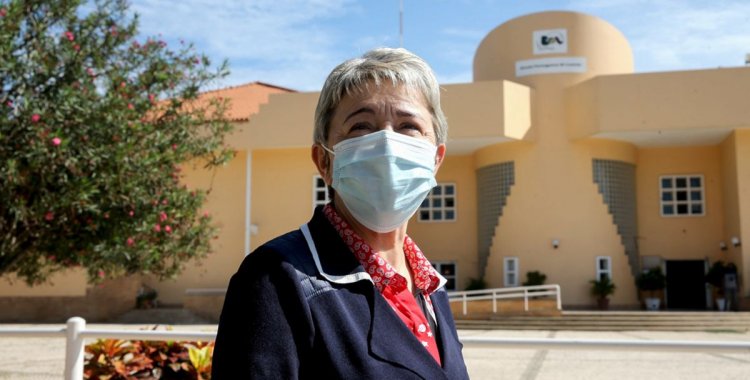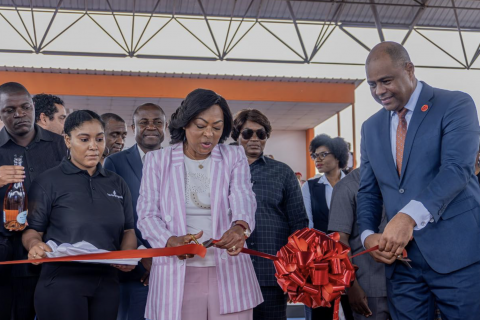Berta Nunes, who began her five-day agenda with a visit to the Portuguese School of Luanda, said that her trip to Angola aims to understand the various manifestations of community organization, as well as to reaffirm the importance of the Portuguese language.
The Portuguese official stressed that she will visit two schools in Luanda and another one in Lubango, capital of Huila province, for a perception of "how they are managing to deal with the covid-19 situation and the problems that exist".
"Try to monitor more closely and take some of this to be reflected at the Government level, so that we can continue to monitor in an increasingly close way and support these schools, within what are their expectations and also taking into account that the Portuguese language for the Portuguese Government is in fact one of the priorities," she stressed.
On the implementation of the second phase of the construction project of the Portuguese School of Luanda, Berta Nunes said that the matter has been discussed with the school management and teachers, as well as what their expectations are.
"In a small dialogue that we had today, right at the beginning, and we will reflect on this together with the Ministry of Education, which is who oversees these schools, we will do this work and my coming here is also to understand what the situation currently is," she said.
According to Berta Nunes, the Portuguese language is an asset to the Community of Portuguese Speaking Countries (CPLP), the fourth most spoken language in the world, with Brazil being the country with the largest number of speakers.
However, reinforced the Secretary of State of the Portuguese Communities, within 20, 30 years, Africa, and Angola specifically, will be the important engine of the increase of Portuguese speakers.
"The Portuguese government is giving a sign here that it wants to monitor more closely, to support and value these schools that are promoting the Portuguese language, in this case with curricula similar to Portuguese and with an advantage that is access to higher education in Portugal, because that is an advantage," she stressed.
The internationalization of higher education in Portuguese universities is another of the goals, said Berta Nunes, in this sense the Portuguese schools play an important role in the proper preparation of students.
"With a curriculum that overlaps with the curriculum we have in Portugal, it doesn't have to be Portuguese, there are Portuguese, non-Portuguese, that's not what matters. It matters that if these students want to go to Portugal to study they also have an additional advantage here," he said.
In addition to visiting schools, the Secretary of State for the Portuguese Communities will maintain a dialogue with the community and with businessmen.
"We are also going to Lubango to inaugurate the honorary consulate that did not exist, the new honorary consul has already been approved, to show that we want to be ever closer to Angola," said Berta Nunes, stressing that the Lusophone African country is "very important now and will certainly be much more important in the future".
"To affirm the language, all our market and all our culture, which is diverse, but which has as its foundation the Portuguese language and that is in fact a very important asset," she stressed.
The visit program also reserves a meeting with the Secretary of State for International Cooperation and Angolan Communities, Domingos Vieira Lopes, with whom he will reaffirm Portugal's willingness to strengthen cooperation in various areas and ease mobility within the community of Portuguese Speaking Countries (CPLP).
"This work that has been done bilaterally and also within the CPLP, of trying to create an area of facilitated mobility within the CPLP is very important, because this will also strengthen the ties between the various countries that speak Portuguese," she expressed.
"Because the truth is that cooperation, collaboration, mutual support, mutual respect, all this is not only created with Government policies, and Portugal is very committed to this cooperation, but also with the communities," said Berta Nunes, noting that Angola currently hosts more than 120,000 Portuguese and Portugal more than 20,000 Angolans.







